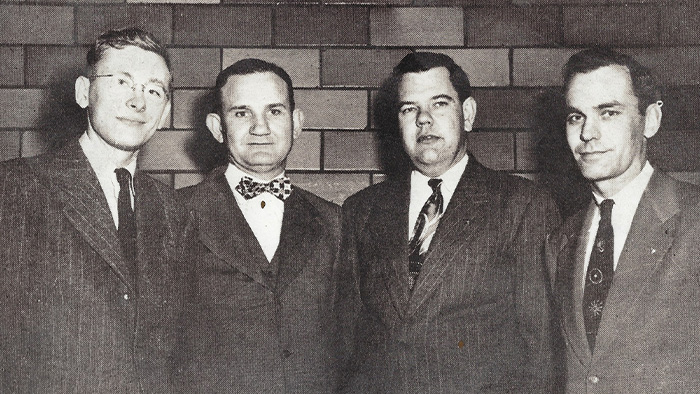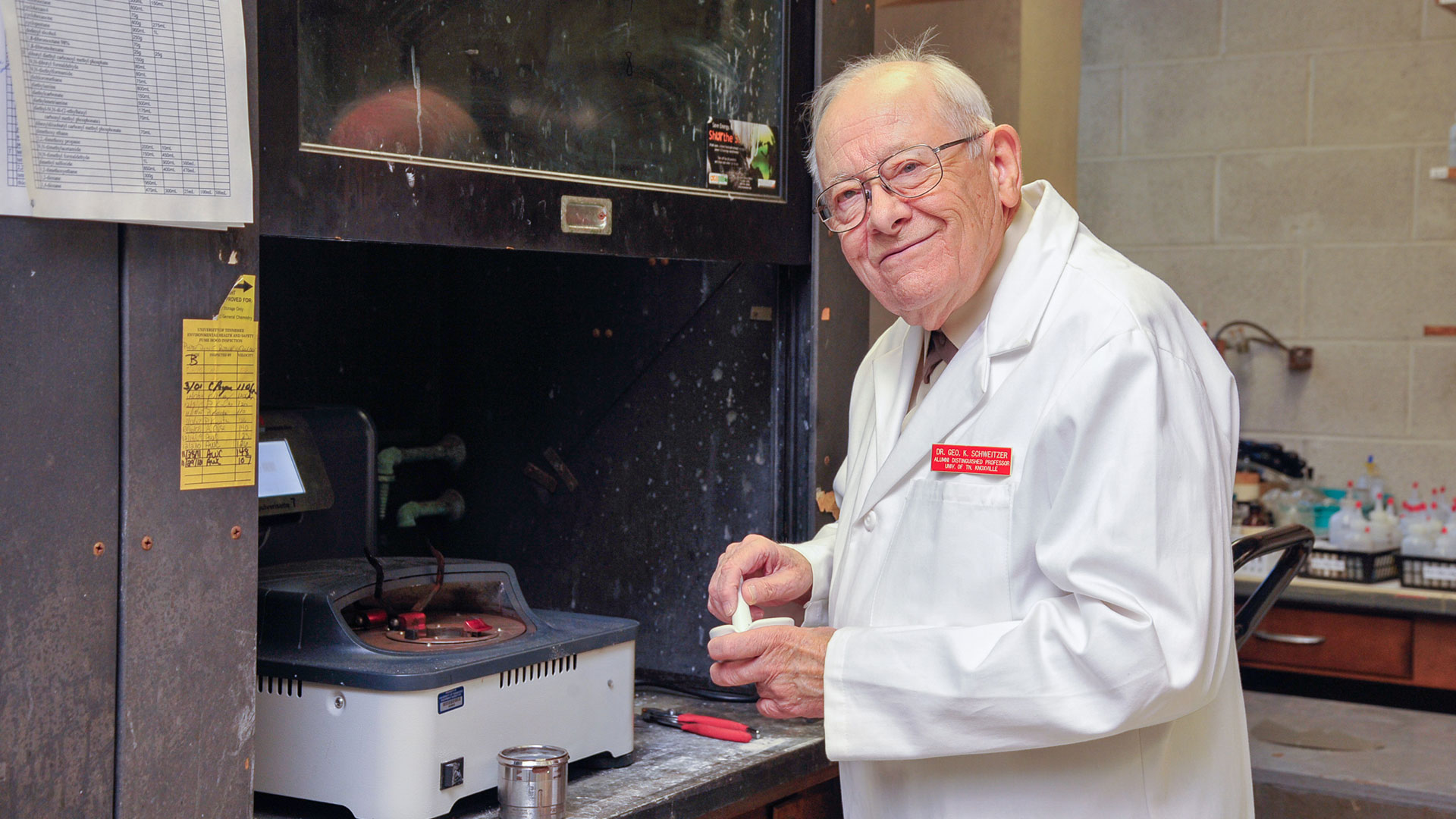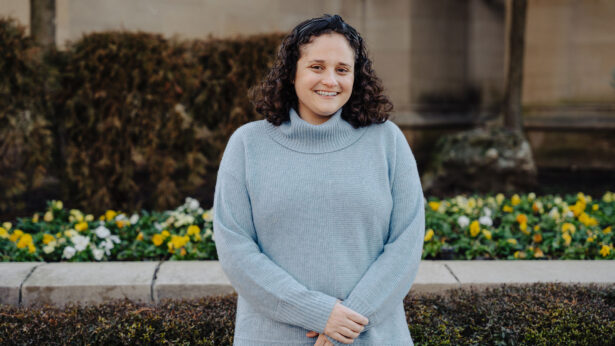Blowing a hole in the attic roof of his childhood home fueled a passion that 99-year-old George Schweitzer continues to share with others: chemistry.
While Schweitzer officially retired from UT Knoxville in 2023, he still teaches one chemistry class a semester, either a graduate course in chemical bonding—“It has beautiful mathematics called group theory that I wallow in,” he says—or an undergraduate course titled Introduction to Chemistry.
Gifted a chemistry set, the then-fourth grader attempted to make his own firecracker in the attic of his family’s home. Instead, the explosion knocked a hole in the roof. He didn’t give up, though. He made his own Roman candles, which he used to chase the neighborhood bully.

“He never messed with us again,” Schweitzer says with a laugh.
That original ignition led to his first doctorate in chemistry from the University of Illinois in 1948—mere days before he journeyed by train to Memphis, then to Chattanooga and finally up to Knoxville to begin teaching at UT Knoxville. He helped to create UT Knoxville’s doctoral program in chemistry and to establish the campus’ collaboration with Oak Ridge National Laboratory. The program’s first two doctoral students worked at the national lab. In his career, he supervised more than 140 master’s theses and doctoral dissertations.
He’s also conducted research funded by grants from the U.S. Department of Energy, the Army, Navy, National Science Foundation and Siemens, among others. His work has been in everything from slow neutron action and yield Szilard-Chalmers recoil products to detectors for positron emission tomography (PET body scanners) and has included designing and building high-intensity ultrasonic radiation sources.
“Do it only if you can’t help it; then it becomes your passion,” Schweitzer says. “Those of us who are obsessed are lucky.”
Schweitzer, who has doctorates in the history and philosophy of religion and in the philosophy of science, taught classes in chemistry, philosophy, history and nuclear engineering at UTK for more than 75 years. Through the passing years, he has educated children and grandchildren of his original students.
“There’s a tremendous reward when you say something, and the kids react. You know you’re getting through,” he says. “It’s a glorious reward when you get that feedback.”
Our Tennessee’s staff was saddened to learn of George Schweitzer’s death on Sept. 20, just as finishing touches were being completed on the magazine. This article now stands as a tribute to his remarkable life and legacy.
Recognitions
- Outstanding Faculty Member.
- First UTK Mace Bearer in 1960-61.
- Mace Bearer in Andy Holt’s inauguration as president.
- Appointed Alumni Distinguished Professor in 1970.
- Awarded the Johnson Lifetime Service Award in 2013.
- Published 17 books on chemistry as well as local and family history, including a history of the UT Knoxville chemistry department.
- Visiting scholar at Oxford University, University of Belfast and University of Jena in Germany.
- National Science Foundation Faculty Fellowship at Columbia University in 1959-60.
- Made over 1,600 addresses in chemistry, local and family history, and science and religion at universities and professional societies.
He earned the doctorate in religion after students questioned him about how science and religion could co-exist.
“I thought I should have some answers,” he says.
Schweitzer’s doctorate in history focuses on modern science in 1600s Europe and Great Britain.
“It was then that great changes in the way we view nature occurred, and these led to what is known as the Scientific Revolution,” he says. “They came about by the interactive clashes between the Greek philosophical view of nature and the Hebrew-Christian view of the natural world. It is amazing that the change came in Europe-Britain and that it came so very late in human history.”
He was active for more than 40 years in the East Tennessee Historical Society and served as the genealogist in residence.
In all, he has been driven by a pervading sense of curiosity.
“I can’t stand not knowing,” he says with a laugh. “It’s a sickness.”
Looking back on his career, Schweitzer describes it as fabulous.
“It’s been a total fulfillment of my life,” he says. “It’s everything I wanted to do. I am most fortunate among all my peers.”



